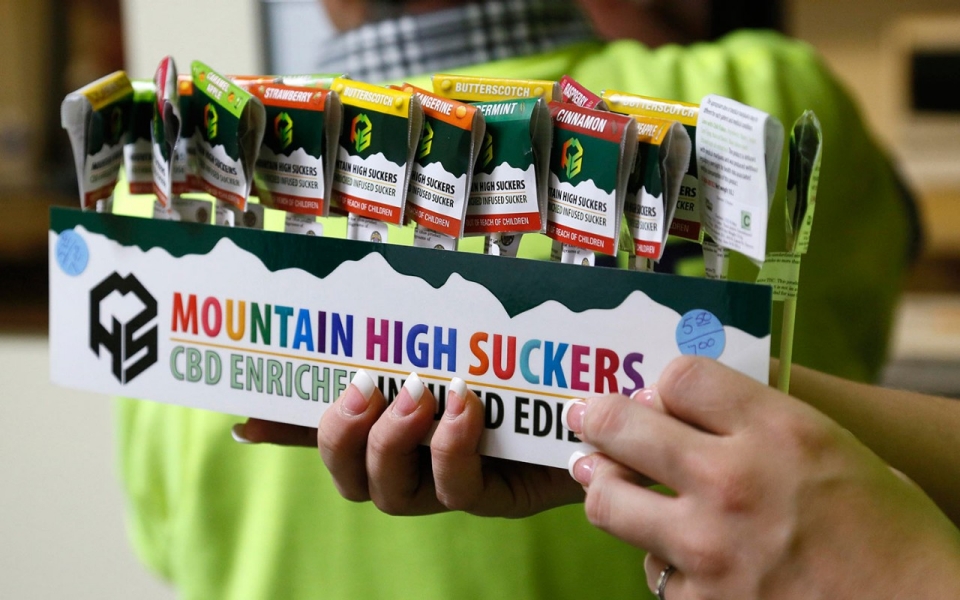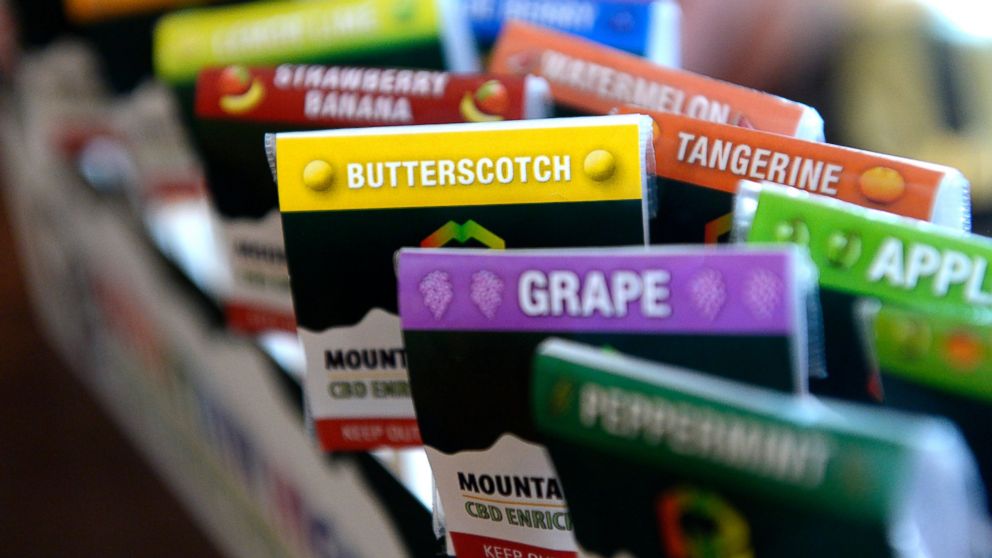Colorado hospitals have increased their numbers of sick children due to Marijuana exposure since the drug was legalized in the state. A recent study analyzed the numbers to create awareness.
A study, held by researchers from the University of Colorado Anschutz Medical Campus, located in Aurora, analyzes the number of kids that have been exposed to the drug due to the right presentations. Marijuana legalization is a common factor in an enormous amount of states within the US, and Colorado was one of the first states to pursue that goal. Since 2000, legal Marijuana has been legal in the state, yet it wasn’t until 2014, that recreational pot was admitted.

Edible Marijuana has become a trendy way to consume the drug, from cookies to brownies, gummy bears, lollipops, and treats. Marijuana users have now a wide variety to choose their way of ingesting the drug.
Exposing kids to weed
Products made from THC, which is the compound within marijuana, come in all differents sizes and packages very similar to traditional treats. These ordinary looking treats are loaded with THC in different levels.
Toddlers and children are the main characters in the candy market, so it is nothing but common, that a child will pursue and eat a candy that has been left outside or in plain sight. The problem is the treat, might be loaded with edible weed.
Since the legalization of the drug, some parents have become more careless when it comes to hiding their stash. That’s why hospitals and poison centers are treating more children suffering from the strong THC levels in their blood.
Edible marijuana that looks like candy is sending kids to the ER: https://t.co/8DdplwPDYJ #RossenReports pic.twitter.com/PbSjr41Zcv
— TODAY (@TODAYshow) May 25, 2016
“Edible marijuana products look very much like a regular food product, and so they’re very attractive to kids because it’s candy and baked goods, and also very palatable,” said study author Dr. Genie Roosevelt.
Most of the affected children are under the age of ten, in fact, the standard number of poisoned children with THC is two years old. Which is a very young age, from such exposure, the study assures.
To determine the numbers, researchers examined and analyzed the weed-related visits to the Children’s Hospital Colorado in Aurora. A database of admissions from 2009 to 2015, was created. Researchers first determined, that from all of the weed-related visits, 81 kids were treated in the hospital for THC exposure and all of the patients were under the age of ten.
The study also notes, that the Regional Poison Control Center in the state documented a substantial increase in calls made due to THC related ingestions. The initial number was nine reports in 2009 and as of 2015 47 calls were made.

After ingesting THC, kids show symptoms of being very sleepy and barely staying awake, they also showed a lack of balance, coordination and had trouble speaking. More severe cases were also registered.
Some children in the database may by researchers, had to be interned at the intensive cares unit since the THC levels in their blood sedated them so much, they had to be put on a ventilator and required active observation. As CBS News reports, the effects of THC in the children’s’ body is supposed to last from six to twenty-four hours top. Twenty percent of the patients had to be interned in the hospital for almost two days.
Researchers also note in the study, that most of the children got a hold of the THC goods thanks to their parents, grandparents, friends, babysitters or family members. Due to careless storage.
Candy-like edible marijuana sending kids to the ER in Oregon: https://t.co/bv1HYERJqA pic.twitter.com/9F9FpYyQ5S
— NBC 7 San Diego (@nbcsandiego) May 25, 2016
Creating awareness
Since recreational weed was legalized and edible THC products became commercial in the market, regulators have issued statements and guidelines to secure the goods in child-proof packages that also indicate the amount of THC in the product.
Before edible weed products were available, it was less likely for a child to grab a cigar or a joint and became infected with it. Edible THC candies are making it more possible for kids to get poisoned.
The state of Colorado, demands that these consumable goods are sealed in a way that children are unable to open, yet in many cases, parents left the goods out in the open or public mid-ways making it easier for the child to obtain.
Advice also includes making the edible products less appealing to commercial and regular treats making them less attractive to children and toddlers. Marijuana has been legalized for both medical and recreational motives in several states, and although scientists have proven the drug doesn’t cause overdoses, two death cases in Colorado involved THC consumption.
In 2014, a Wyoming 19-year old was visiting Denver along with friends that bought weed-infused cookies. Although the seller advised them to cut the cookie into six pieces and eat a piece, the teen ate the whole candy.
His friends reported the teen acting strange and kicking stuff around the hotel room before throwing himself off a fourth floor and dying of trauma.
A Colorado woman was killed by her husband after he mixed a candy infused with THC and prescription medicine. According to reports, the woman was in a call with 911 when his husband killed her.
Source: CBS News
